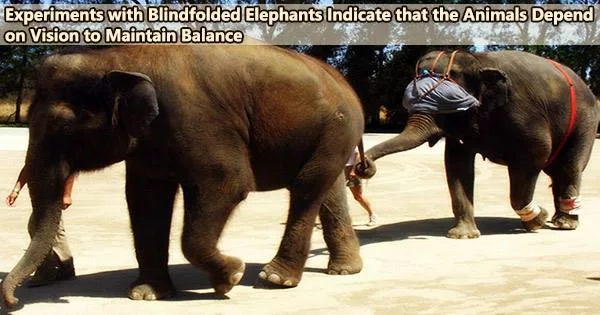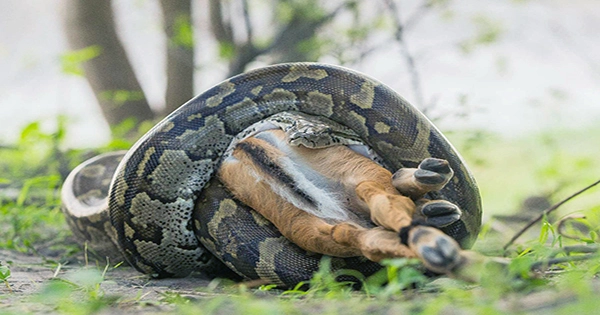Elephants depend on their vision to keep their equilibrium, according to a pair of researchers one a neurologist and physiologist at Boys Town National Research Hospital and the other a professor of evolutionary biomechanics at the University of London. In their study, published in the journal Biology Letters, Max Kurz and John Hutchinson conducted experiments with trained captive elephants.
According to earlier studies, larger animals are more likely than smaller ones to sustain injuries from falls, and the danger only increases with an animal’s size. For elephants, a fall could be deadly due to internal organ damage or broken bones. For that reason, maintaining balance is critical for elephants.
The vestibular system in the inner ear and feedback from the limbs are two examples of the methods used by humans and other animals to maintain balance, according to earlier study. In this new effort, the researchers sought to discover how elephants maintain their balance.
Suspecting that eyesight plays a major role in maintaining balance in Asian elephants, the researchers contacted trainers at Have Trunk Will Travel, a company that trains elephants for use in movie and television roles.
The training crew and the researchers collaborated to make four Asian elephants giant blindfolds. They also strapped GPS trackers to their torsos and accelerometers to their feet. Together, the sensors made it possible to track the elephants’ movements and gait, as well as the duration of each footfall.
The elephants were then instructed to walk single-file along a trail in pairs, with the lagging elephant clutching the leading elephant’s tail with its trunk. For some walks, the following elephant was blindfolded, for others, it was not.
The researchers then looked for differences in sensor data. When elephants were blinded, they discovered that the timing of their footfalls was occasionally irregular, and the elephants had trouble keeping their stride.
The researchers hypothesize that elephants keep their equilibrium by synchronizing their steps with their vision.
















